
Please note: I use the pronoun “you” and expressions such as “you should” quite heavily. By no mean do I try to be patronizing, nor do I pretend to hold the truth about what I’m talking about. Simply, “you” is easier to use than the impersonal and more indirect “one”, and I dislike hesitant language that makes use of expressions such as “probably”, “I think that”, etc. So pardon my directness, and stay critical. Finally, note that this article follows two others: why and where a PhD, and from choice to admission.
I’ve seen many posts about the admission process per se, but when it is actually time to decide, there is a clear lack of resources on the internet. Therefore, I believe that there is some value in discussing what comes after you received your offers. Let me first highlight some issues about funding and getting waitlisted, and then we can get to the real business: the final choice, the one that will govern your next five years
Your offer letters will hopefully include some funding: if they don’t, then it is synonymous with a rejection, unless you have an external grant (or very rich parents). Generally, funding will include a tuition waiver and a certain stipend, usually above 20’000$. Factors to take into consideration are: is the amount valid for five full years? Is it tied to some mandatory teaching or research assistantship? If so, for which years and for how many hours? Some schools will pay you for that in addition to what you would receive unconditionally, while for others this is in fact a salary. In any case, the stipend is usually negotiable, and if it is, you should always try to negotiate it upwards. A school will certainly not withdraw or downgrade an offer because you’re trying to raise your pay. So the hardest thing is to ask, the rest is a 100% win situation, and can even send a positive signal (you value yourself more than what they thought). If possible, however, you should wait until you get all the other offers, just to know what’s your bargaining power, because they will assuredly ask for your alternatives. It goes without saying that you should never lie!
Next, we need to talk about what happens when one gets waitlisted. This is what happened to me at Princeton. Be proactive. Remember Ellsberg’s paradox: people tend to prefer known unknowns to unknown unknowns, and if admission committees can picture your name, you mark points. Show that you have serious interests in going there, if you truly have. Following the email that announce that you’ll be on the waitlist, you should reply another one detailing your preferred offer(s) so far (if you have one already), reiterate the interests you have in this school, and offer the admission committee to not hesitate to contact your preferred referee if more information is needed. If your outside option raises, but you’re still interested in the offer, don’t forget to send an update; if you’re certain not to be, you should ask to drop out. Finally, take the time to contact all your professors who care about you to see if they might have interesting contacts able to unlock the situation. I hate to admit it, but this networking probably helped me, so if you care, do it.
Back to your choice. Two general advice to begin with: first, take this process very seriously, as said this will be the next five years of your life, you definitely want to spend some time thinking thoroughly before committing to such an investment. Are you happy with your offers, or do you think you could do better if you waited another year while strengthening your profile? If you’re too old, and your offers don’t excite you, it might be the last time to consider a reconversion. On the other hand, don’t sweat it. Even if you aimed for the top2 and ended up in the top10, for example, the difference (conditional on you being a good researcher) would be marginal.
Still, sometimes a choice has to be made, and it can be tough, especially since there aren’t any study that aggregates the pros and cons of different PhD programs from the perspective of students. Before I give my own preferences, there are a couple of things you could do to make yourself an idea. First, you should absolutely go to the visit days, where you’ll have the chance to meet current and prospective students, the faculty, and have a feeling about what’s the “spirit” of the school, how the surroundings feel, etc. Second, you could contact some of the current PhD students and ask them for their feelings, especially if you can’t attend some of the visit days. They often have no reasons to lie and won’t “sell” the school to you. Third, talk to the young faculty that you know, especially if they did their PhDs at schools that you’re considering. Fourth, you should always keep an eye on where the students on the market from these schools are heading: although it is hard to differentiate the selection from the treatment effect, this is surely an indicator you want to look at. Fifth, don’t forget that what counts the most is your own sentiment, not what other people say about this and that (especially on EJMR, which is full of trolls). In particular, if you have some specific concerns about a school, ask your contacts at that school directly. They will be more than happy to provide insights on the potential issue.
Next, be aware that my own point of view will be biased by what I’ve read so far and what my interests are. I definitely know nothing about most micro, IO and labor scholars; in contrast, I know better the recent macro, monetary and trade literatures, and a fair amount of econometric research too. Again, my “rankings” are purely subjective indications, and should be taken as such. I would be very happy to debate about them, especially if that can enrich the information set of deciders. Finally, reading my summaries ex post, I can say that for the schools I don’t know well, what I report is more the “mainstream” feeling about the school rather than accurate facts. Also, bear in mind that this article was written in 2014 and hence things might have changed by then.
Massachusetts Institute of Technology – Harvard University
There has been constant debate about which of these two should top the rankings, and if I aggregate what I’ve heard, I feel MIT does seem to take the lead (there is an old entry by Mankiw if this sterile debate interests you), although it will likely depend on your field and professors of interest. Anyway, there is in my opinion a clear gap between the two Cambridge-based schools and the rest, so unless you have some very strong preferences that drives you towards another school, being accepted there is probably a no-brainer, and hence I won’t even take the time to present their fabulous faculties.
Stanford University
I must say I do not know much about Stanford’s program, nor do I know young scholars that got out of it – yet from what I’ve heard by asking people around, it is a serious opponent outside of the top 2. A quick browse through their website will reveal the depth of the available faculty there. In macro (broadly defined), Robert Hall (monetary, growth), John Taylor (the Taylor rule!), Pete Klenow (productivity, industrial production), and the younger Nicholas Bloom (uncertainty, productivity) and Dave Donaldson (his paper on railroads in colonial India is one of the coolest econ paper I’ve ever read) all made significant and interesting contributions to their fields.
In econometrics, if you have worked in the treatment effect literature you will recognize the names of Guido Imbens and Susan Athey as well as Joseph Romano (hypothesis testing and beyond). I’m not at ease with research in the micro area, but there are definitely some big names like Nobel Prize winner Alvin Roth, legend Paul Milgrom, David Kreps (whose new graduate micro books will hopefully replace good old MWG, and guarantees you a very decent micro course!), Matthew Jackson (Networks), and I probably forgot many at the GSB. To conclude, unless there’s nobody in your field, Stanford is a very decent choice outside of top2 – and the location’s got to be one of the most amazing, obviously.
Princeton University
I know a bit more about Princeton – that’s where I am – so let me try to be as objective as I can. In contrast to California, Princeton probably isn’t the most exciting place on earth, and some students even end up living in NYC and commute. But this is certainly compensated by an isolation and intellectual culture that will help your research. Also, I find it interesting that it is very difficult to classify Princeton’s economists: most of them seem to like navigating between different fields.
Nevertheless, Princeton has always been known for its emphasis on micro theory, and you will find what you need there with people like Stephen Morris, Dilip Abreu and Faruk Gul, as well as hybrid micro-macro theorists such as Roland Bénabou and Yuliy Sannikov. Another traditional strength of Princeton is its group working on the junctions between macro and finance: in fact, the finance faculty live within the department of economics. There is almost no need presenting Nobuhiro Kiyotaki, Markus Brunnermeier and Alan Blinder (whose book on the crisis After the music stopped is a very interesting read), and there are other promising heads such as Mikhail Golosov and Valentin Haddad. But the macro group goes further with the presence of Mark Aguiar (who does all kinds of macro) and Nobel prize winner Chris Sims, whose work on macroeconometrics revolutionized the field. The trade group has not been left behind with three of the most prolific writers in the area: Gene Grossman, Stephen Redding, and Esteban Rossi-Hansberg. Finally, there seems to be a decent amount of people doing labor there, which is a field I know nothing about, and I also need to mention Angus Deaton (development), and Mark Watson and Honoré Bo (econometrics).
Berkeley
I somewhat hesitated to include Berkeley and Chicago in the group with Stanford and Princeton, and arguably if there’s a gap it isn’t large. Berkeley has always had a solid program, and I can only speculate what I’ve been told about it since I haven’t visited it nor did I met any PhD students from there, although I know a couple of previous undergrads. To begin with, Berkeley apparently had some of the best placements for their students in the last 5 years, which is probably a strong indicator of the quality of the program. Moreover, the location and the spirit of the school is apparently quite unique – and if you believe that this could benefit your research (as I do), you should definitely take that into account.
If you love economic history and policy, this place is made for you, with Barry Eichengreen, J. Bradford DeLong, and Christina Romer. The last two also contributes to monetary economics, without forgetting David Romer. If you like microeconomics with an experimental or psychological tone, the sole presence of Matthew Rabin – and everything that goes with it – could make the difference for you. I was personally taught graduate micro by a young assistant professor who did his PhD at Berkeley, and loved the psychological touch he gave to the lectures. For other active scholars, let’s cite Maurice Obstfeld (international finance), Emmanuel Saez (labour, inequality), David Card (labour), and Andres Rodriguez-Clare (international/development economics). Compared to when I browsed the website of the aforementioned schools, I must say that less names popped out, but that could well be a result of my ignorance. A true concern, however, is money: the stipends proposed in the offers were quite low from what I’ve heard, and involved heavy teaching or research duties.
Chicago
Chicago is certainly the most controversial school of the top10, and a lot has been said about it. Having attended the visit days there, and having considered it as a serious offer, I’ve gathered a reasonable amount of information about it. First, yes, Chicago seems to be a tough place to do a PhD. The program is unusual in many aspects, the teaching to begin with, which is less standardized than at other schools. Some hate it, some love it, although the opinion seems negative overall: I personally didn’t like the (small) sample of 4 lectures I attended, except perhaps the one of Roger Myerson on game theory. Moreover, from the mouth of the students themselves, nobody is going to hold your hand – you have to be able to move on independently, especially if you want to stand out. Next, the student/faculty ratio is often a concern, even when Booth (the business school) is counted in, although they aim at reducing the size of the entry class to 20-30 students, as is common elsewhere. Finally, the location is perhaps not the greatest, although most of the PhD students agreed that the crazy things you hear about Hyde Park are very likely to be completely wrong. Chicago is also a great city, which I personally preferred to NYC – if living in a colder-than-average weather doesn’t bother you too much.
On the pros side, the list of big names is truly impressive: Robert Lucas, James Heckman, Lars Hansen, Nancy Stokey, Roger Myerson, Eugène Fama, John Cochrane, Douglas Diamond, and the list goes on. You can add to that John List (experimental, and head of the program; do have a chat with him if you can), Harald Uhlig (macro), Robert Shimer (macro/labour; I’m a huge fan), Chang-Tai Hsieh (growth), Chad Syverson (productivity), Michael Greenstone (environmental), Steven Levitt (price theory, author of the freakonomics series) and I forgot many more, especially at Booth, where there is a reasonable amount of young scholars doing research on current hot topics. To summarize, the combination of old, big names with younger researchers on your supervision board certainly seems appealing. Moreover, I took the time to attend a couple of seminars at Chicago, where one can see the Chicago spirit in motion: the debates were stringent and vivid, the faculty will not allow a presentation to move on if a potential flaw had been spotted. The atmosphere at these seminars (and the discussions that followed) was intellectually inspiring, and the contrast with what I’ve seen here at LSE was marked.
I personally came to the conclusion that Chicago was more a place where I would like to do research rather than one where I would study, given the idiosyncrasies of teaching, the tough atmosphere, and perhaps the lack of care. But clearly, if you’re certain of your ability to be among the top of your cohort, then you’ll be treated as such, and your prospects on the job market will be as good as if you were from a top2 department. To conclude, Chicago is definitely a great option to have.
NYU
Located in the middle of New York downtown, in the rather cool neighborhood of Greenwich Village, NYU certainly has one of the most exciting location for those who like the big city life. The PhD program has been consistently improving for what I’ve been told, especially after the arrival in 2002 of Nobel Prize winner Thomas Sargent. For those looking at macroeconomics and monetary economics, there is a very large choice Timothy Cogley, Mark Gertler, Ricardo Lagos, John Leahy and Xavier Gabaix, among others. For development economics, look for William Easterly and Debraj Ray. Let’s also mention Ariel Rubinstein, whose microeconomics lectures are known to all, Efe Ok, whose books on advanced mathematics for economists look fairly interesting, Boyan Jovanovic, and Edward Vytlacil, one of Heckman’s most famous student and who made significant contributions to the literature on causality in econometrics. Again, I lack knowledge about this school on particular, and it might be one of the most underrated one of the top10.
Yale
Yale probably suffers a bit from its location, although as for Princeton, some will like the intimacy provided, and New York and Boston are not far away. I must admit that there aren’t many names I can recognize in the faculty list, whatever that means, but one thing is certain: if you like econometrics, it is a place to be, a tradition that started with the arrival of the Cowles Foundation from Chicago. I had the chance to receive some metrics lecture from an assistant professor coming from Yale, and I loved it. At Yale, Donald Andrews, Yuichi Kitamura, and Peter Phillips will teach you the latest advances in econometric theory. For what I’ve seen on the website, there also seems to be a numerous amount of people doing game theory and IO (Dirk Bergemann, Johannes Hörner, Larry Samuelson, Philip Haile). They also have some names in macro: Nobel Prize winner Robert Shiller, Ray Fair, William Nordhaus (also environmentalist), and Samuel Kortum (also trade). Overall, there will be someone to do what you like with, but the faculty hasn’t as much depth as the aforementioned schools. Finally, let us mention that the stipends from Yale are usually high, a consideration for those of you who like the green flavor.
Columbia
Another school that I had the change to visit, as it fitted my schedule. Located in uptown New York, close to Central Park, the campus is truly beautiful for being set in the center of such a big city (even though the econ department building itself isn’t that nice). The faculty has a very interesting mix of senior economists (such as Jagdish Bhagwati, Edmund Phelps, or Joseph Stiglitz) and younger ones. There is a solid amount of people doing current research in macro and monetary economics, including Michael Woodford, Ricardo Reis, Martin Uribe, Stephanie Schmitt-Grohe, Emi Nakamura and Jon Steinsson. The group in developmental and growth economics has not been left behind either with Jeffrey Sachs, Xavier Sala-i-Martin, Miguel Urquiola in addition to the ones already mentioned above. There seems to be a number of people also working on contract theory, notably Bernard Salanié. Overall, the faculty seemed dynamic, young and friendly, and the long discussion I had with Ricardo Reis almost convinced me to come – he promotes a “lab-like” experience for its PhD students that seems extremely entertaining.
Northwestern
Located north of Chicago, Northwestern University is a very serious opponent if you like micro theory and especially IO: Eddie Dekel, Jeffrey Ely, Marciano Siniscalchi are there, among others. But even in macroeconomics, Northwestern has some of the best people around: Lawrence Christiano and Martin Eichenbaum, for example, are the guys behind what is probably the most used New Keynesian DSGE model by now. I had a 5-day courses with the former, and I would re-do it anytime. They aren’t alone in macro: you can also count on Robert Gordon (productivity) and Guido Lorenzoni (macro-finance) for example. Finally, in econometrics, the names of Joel Horowitz and Charles Manski will probably sound familiar.
Conclusion
Hopefully, you’ll have reached by now the same conclusion as me: all these faculties do look pretty exciting, and going to any of them seems like an amazing plan on its own. So feel free to pursue your feelings – you can hardly make a bad decision. You’ll have remarked that I’ve not gotten beyond the U.S. top10, simply because this is the limit of my scarce knowledge (and motivation), but you should have the tools by now to provide yourself an accurate picture, and moreover, I’ve already pictured in part 1 which are the schools I believe are worth having a look at.
These lines conclude this tentative guide on PhDs in economics, from why to how. I had pleasure writing it, fuelled by the hope that it will help some of you – and given the private messages I’ve received so far, this seems to be the case — if you want a more cynical view, check out this post on EJMR. Also, if you want more information from people that know their stuff, you should definitely have a look at URCH.



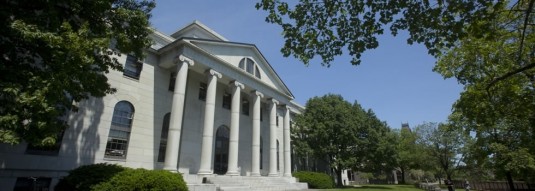

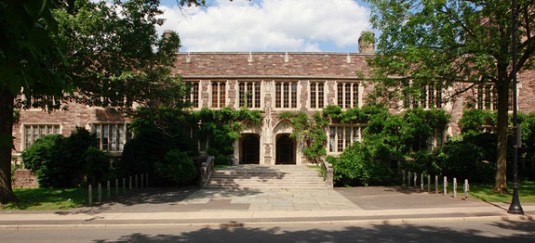
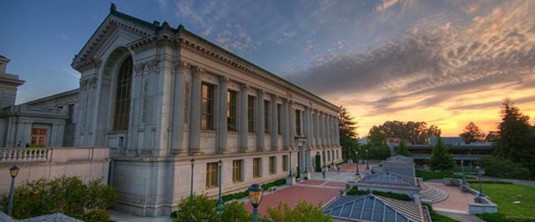
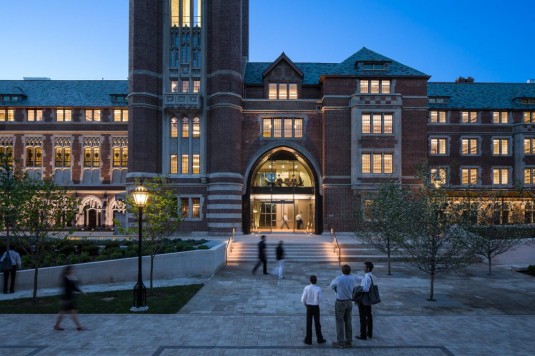
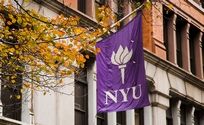

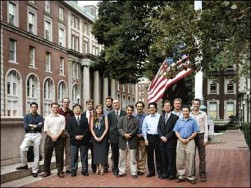


This page definitely has all the info I wanted about this subject and didn't know who to ask.